
STORIES
08-10-2009 by Freddie del Curatolo
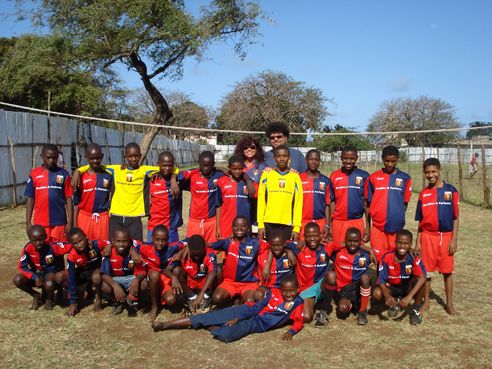
It's no coincidence that my biggest 'diseases' are Africa and Genoa.
In fact, we are talking about the continent "cradle of humanity" and the Italian football team "cradle of civilisation". If it is true that the first hominid appeared on the border between Kenya and Ethiopia, it is equally true that the first Italian "homo pedatorius" appeared under the Lantern of the "Superba", back in 1893. Kenya was civilised by the English, who were also the founders of the Rossoblu team.
Not to mention that cheering for a football team is in itself a syndrome, as certainly is that feeling that we commonly call 'African Sickness'. Those who are Genoans know this: it is not only a matter of affection for a jersey, of healthy competition with other teams from other cities, of the pleasure of finding each other and discovering that we are the same in expressions of joy and discouragement. Worshipping the Grifone is something more akin to a faith that becomes a way of life. Vittorio Gassman, a great Genoan, was well aware of this and coined the admonition: "You were born a Genoan, do you want to win too? "Sandro Pertini was also aware of this (who, as president of all Italian fans, said to journalists on the plane taking the 1982 World Cup champion team back home: "I am a partisan, a Genoa and Azzurri fan") and Fabrizio De Andrè, who alongside the immortal verses of his poems set to music, on precarious sheets of paper or crumpled pages of a notebook, imagined the Grifone's Sunday formation with names and positions on the pitch.
Being a Genoa fan in Africa is an extraordinary feeling, complementary and tautological.
In the back cover of the book "Genoa Club Malindi" I write: "Sickness of Africa and Sickness of Genoa.
Whoever has been affected by it will never be able to avoid seeing his own existence running on parallel tracks, considering the fundamental stages of his earthly path without exploring that part of his soul that asks to be satisfied in only one way, with belonging. Being a Genoan, belonging to Africa. Similar sensations, heartbeats like the hooves of twin animals galloping wildly in a savannah of wonderful emotions'.
But football in Kenya also provides that primitive sense of leisure, aggregation, involvement and fantasy that has transformed it from a street game into the most popular sport in the world. The enthusiasm of the children in this part of Africa at the mere touch of a plastic or rag ball in the clearings of the savannah reminds us of Italy in the immediate post-war period, of the districts of Naples and the suburbs of the northern cities. When the ludos then moves to the television, to the crowded, warm bars, amidst spicy breaths and free, wild aphorisms like counter-attacking fantasists, the pleasure of sport and competition is added to the spectacle of enthusiasm, challenge, teasing and even quarrelling offered to the spectator. The half-torn English team shirts with the names of players who have been retired for a decade, the bottles of warm beer just waiting to be knocked over after a goal, the dripping foreheads wiping themselves with spongy Guinness coasters. Can you imagine a public place in Kenya where women, even if portly and sheathed in evening dresses at four o'clock in the afternoon, are frowned upon or, worse, not even given a fleeting glance between a shot over the crossbar and a goal kick?
As with the game, in makeshift pitches on the beach or on the side of red dirt roads, this 1950s Bar Sport atmosphere has almost been lost in Europe. When football was truly synonymous with unity and not a way to vent one's repressions, and the parochialism of cheering stimulated ingenuity, not falling into petty caste rivalries. When there were no pay-per-views and in order to watch a match it was obligatory to relate with others.
Today, in addition to the liberating sense of relying on the unknown of a kick, there is also the dream of becoming a champion. In Kenya, people no longer look only to the boyish men of the plateau, to the marathon runners of Eldoret and Nakuru, but also to the tightrope walkers of the ball, like Mc Donald Mariga, the midfielder from Nairobi who landed in Italy, plays with Parma and faces opponents with a smile, as if they were muzungu to be welcomed at the airport with the catchphrase "jambo, habari? Karibu Kenya'. Even the dream is uncorrupted here. It is not a desire for showgirls, yachts and the good life in night clubs. It is the hope of turning one's own village into a jewel with water and electricity, like that of Obama's relatives, it is being recognised in the streets and bringing optimism to other young people, like former Olympian Kipteker does.
Maybe it won't last long, because after the footballer with the fast food name, the scouts of half of Europe have scattered over the red earth mixed with weeds fields of East Africa in search of the new Drogba or Eto'o. They pick up self-styled, feline-footed, frightened-looking youngsters and put them in a college in Ghana for a year, or give them and their parents a season in the cold of Brescia or Udine, only to send them back to their homeland with their dreams frozen. Mariga himself, after being rejected by the football multinationals, had started his career in Scandinavia, where he used to run three times more than the others and jumped higher than everyone else to warm up. Now in Emilia he feels like being in the tropics.
Africa, thanks to football, has another of the many possibilities to save the planet from barbarization. Yes, because she was the first to know and suffer barbarism, and she chose to remain an adolescent, with all the consequences that such a decision entails, including that of being abused by adults and by her own relatives. If in public life, in politics, in the economy and in the exercise of power it is a serious mistake, in recreational and sporting events it will always be a virtue. This is what Genoa taught before anyone else in Italy, and this is what English football, for which so many Kenyans are so fond of, still tries to spread.
Long live football in Africa, especially if under the sign of the Grifone!
by Freddie del Curatolo
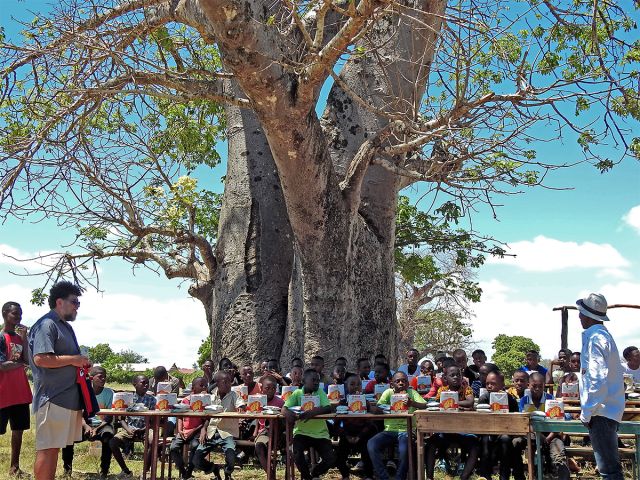
Celebration, support and panettoni for the Malindi suburban street kids' soccer school as it enters...
SOCIAL ACTIVITIES
by Freddie del Curatolo
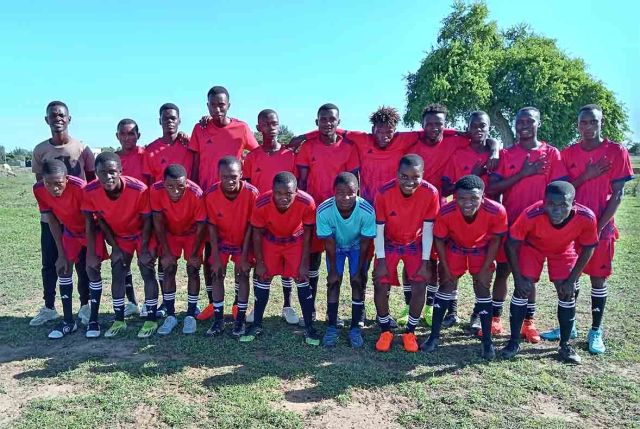
With the crucial help of Karibuni ODV, our football academy, Real Malindi, was once again able to...
by redazione
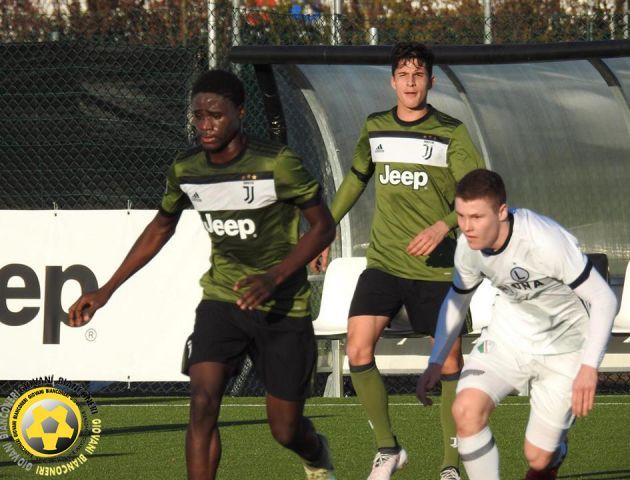
He is called Richard Odada and, like many of his Kenyan peers, he dreams of becoming a professional footballer.
Surely compared to many guys in and around Nairobi, Richard burned the stages.
After reaching...
PERSONS
by Freddie del Curatolo
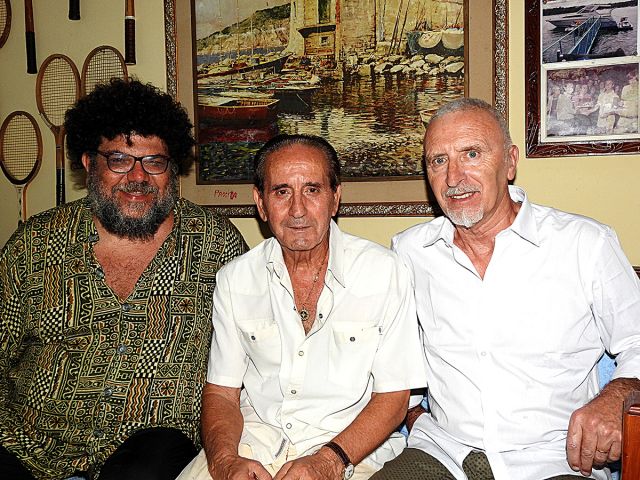
Goodbye Rome, Karibu Malindi!
The unforgettable centre forward of the ...
PERSONS
by redazione

The founder and director of the portal of Italians in Kenya, Alfredo 'Freddie' del Curatolo, is a...

The Italian citizen resident in Kenya, Alfredo Del Curatolo, was awarded by the Italian Ambassador to Kenya, Alberto...
STORIES
by Freddie del Curatolo
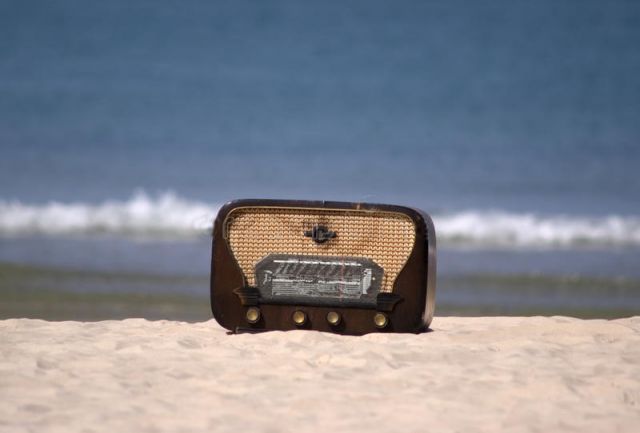
This year, the fragmentation of television rights, which the new network DAZN won and then sold to...